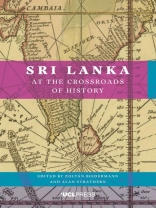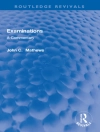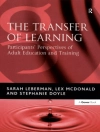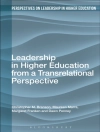The peoples of Sri Lanka have participated in far-flung trading networks, religious formations, and Asian and European empires for millennia. This interdisciplinary volume sets out to draw Sri Lanka into the field of Asian and Global History by showing how the latest wave of scholarship has explored the island as a ‘crossroads’, a place defined by its openness to movement across the Indian Ocean.
Experts in the history, archaeology, literature and art of the island from c.500 BCE to c.1850 CE use Lankan material to explore a number of pressing scholarly debates. They address these matters from their varied disciplinary perspectives and diverse array of sources, critically assessing concepts such as ethnicity, cosmopolitanism and localisation, and elucidating the subtle ways in which the foreign may be resisted and embraced at the same time. The individual chapters, and the volume as a whole, are a welcome addition to the history and historiography of Sri Lanka, as well as studies of the Indian Ocean region, kingship, colonialism, imperialism, and early modernity.
Praise for Sri Lanka at the Crossroads of History
‘[Sri Lanka at the Crossroads of History] brings us views of well-published scholars, and the collection conforms to the highest standards of the historical enterprise. Historians in Sri Lanka and elsewhere will profit by it, and it should be in every major library.’
Sri Lanka Journal of the Humanities
‘[Sri Lanka at the Crossroads of History] brings us views of well-published scholars, and the collection conforms to the highest standards of the historical enterprise. Historians in Sri Lanka and elsewhere will profit by it, and it should be in every major library.’
Thuppahi’s Blog
‘works such as this could play a key role in… framing debates on what direction Sri Lanka should take in the future’
Himal Southasian
‘This valuable volume, offering access to much recent research and thoughtful analysis, will rightly capture the attention of Sri Lanka and South Asia specialists. Sri Lanka at the Crossroads of History has much to off er other readers and interlocutors also, especially scholars of world history and Indian Ocean studies, including those debating the comparative reach and value of “cosmopolitanism” as an analytical concept.’Professor Anne M. Blackburn, Department of Asian Studies, Cornell University, USA
Зміст
Introduction: Querying the cosmopolitan in Sri Lankan and Indian Ocean history
Alan Strathern and Zoltán Biedermann
1 Archaeology and cosmopolitanism in early historic and medieval Sri Lanka
Robin Coningham, Mark Manuel, Christopher Davis and Prishanta Gunawardhana
2 ‘Implicit cosmopolitanism’ and the commercial role of ancient Lanka
Rebecca R. Darley
3 A Pāli cosmopolis? Sri Lanka and the Theravāda Buddhist ecumene, c. 500–1500
Tilman Frasch
4 Beautifully moral: cosmopolitan issues in medieval Pāli literary theory
Alastair Gornall and Justin Henry
5 Sinhala sandēśa poetry in a cosmopolitan context
Stephen C. Berkwitz
6 The local and the global: the multiple visual worlds of ivory carvers in early modern Sri Lanka
Sujatha Arundathi Meegama
7 Cosmopolitan converts: the politics of Lankan exile in the Portuguese Empire
Zoltán Biedermann
8 Between the Portuguese and the Nāyakas: the many faces of the Kandyan Kingdom, 1591–1765
Gananath Obeyesekere
9 Through the lens of slavery: Dutch Sri Lanka in the eighteenth century
Alicia Schrikker and Kate J. Ekama
10 Cosmopolitanism and indigeneity in four violent years: the fall of the kingdom of Kandy and the Great Rebellion revisited
Sujit Sivasundaram
11 The digestion of the foreign in Lankan history, c. 500–1818
Alan Strathern
Про автора
Alan Strathern is Associate Professor of History at the University of Oxford and Tutor and Fellow in History at Brasenose College. He is the author of Kingship and Conversion in Sixteenth-Century Sri Lanka (2007), and a number of journal articles and book chapters. He is currently writing a comparative history of ruler conversions to monotheism in world history.












